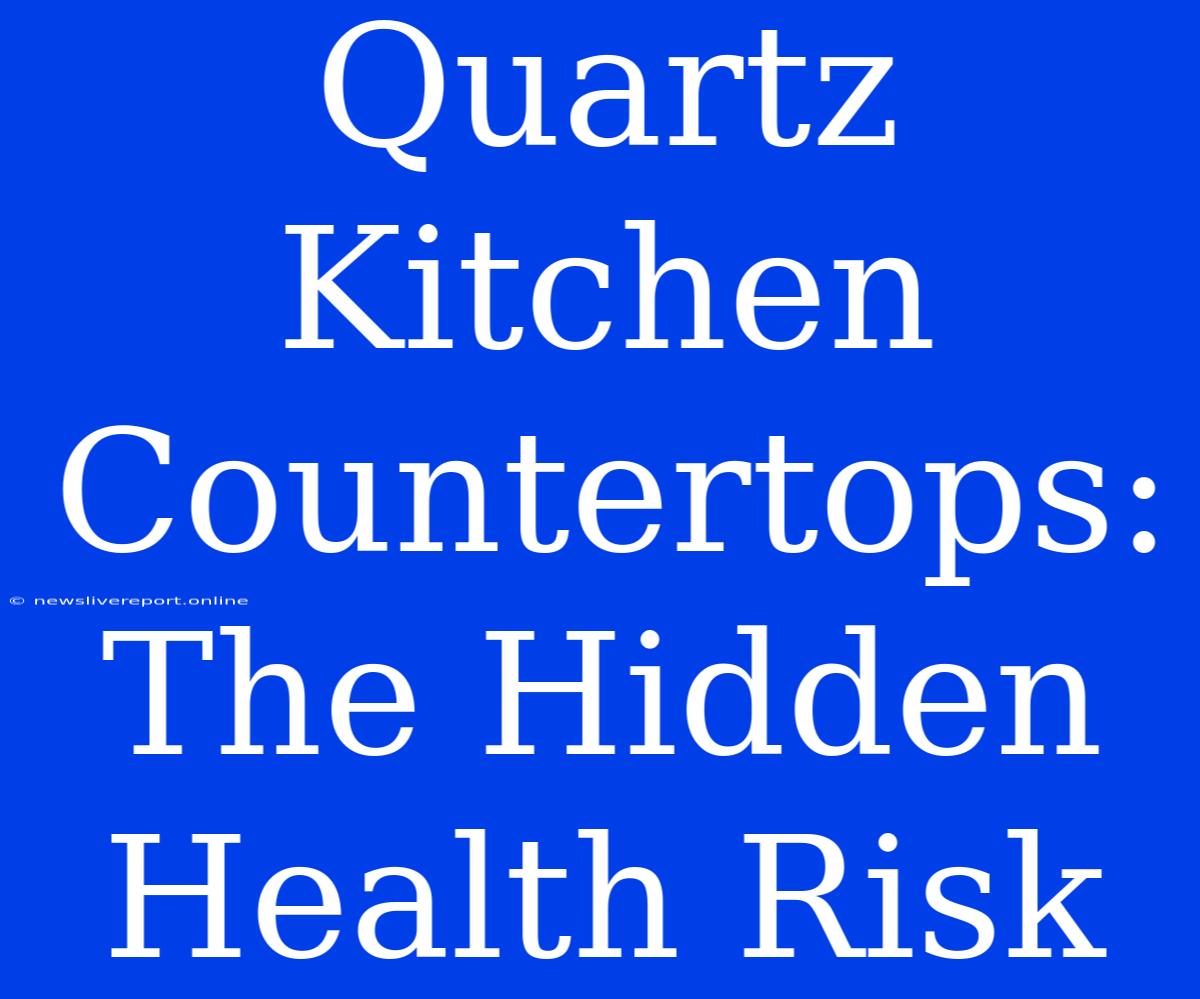Quartz Kitchen Countertops: The Hidden Health Risk You Need to Know About
Quartz countertops have become increasingly popular in recent years, thanks to their durability, low maintenance, and wide range of colors and patterns. However, what many homeowners don't realize is that quartz countertops may pose a hidden health risk. While they are generally considered safe, there's growing concern about the potential for harmful chemicals to leach into food and water.
The Truth About Quartz Countertops
Quartz countertops are not made of pure quartz. Instead, they are manufactured using quartz crystals mixed with resin and pigments. While the quartz crystals are naturally occurring and inert, the resin and pigments can contain volatile organic compounds (VOCs), which can off-gas over time.
Here's the breakdown:
- Resin: The resin acts as a binder, holding the quartz crystals together. Some resins used in quartz countertops can contain formaldehyde, a known carcinogen linked to respiratory problems, eye irritation, and skin allergies.
- Pigments: The pigments used to color quartz countertops can also contain VOCs, including phthalates and toluene. These chemicals are linked to a range of health problems, including hormonal disruption, reproductive issues, and developmental delays.
What Does This Mean for Your Health?
The amount of VOCs released from quartz countertops can vary depending on the specific manufacturer, the type of resin and pigments used, and the age of the countertop. However, even low levels of VOCs can have negative health impacts, particularly for sensitive individuals or those who spend a lot of time in the kitchen.
Here's what to consider:
- Food Contamination: While the Food and Drug Administration (FDA) regulates the use of certain chemicals in food-contact surfaces, there is no specific regulation for VOCs in quartz countertops. This means that chemicals can leach into food, potentially causing harm.
- Respiratory Issues: VOCs can irritate the respiratory system, leading to coughing, wheezing, and shortness of breath. These symptoms can be especially troublesome for people with asthma or other respiratory conditions.
- Long-Term Health Concerns: Studies have shown that exposure to VOCs over time can increase the risk of chronic diseases, including cancer, heart disease, and birth defects.
What Can You Do?
While there's no way to completely eliminate the risk of VOCs from quartz countertops, there are steps you can take to minimize your exposure:
- Choose low-VOC countertops: Look for countertops made with low-VOC resins and pigments. Check the manufacturer's website or contact them directly for information about the specific materials used.
- Proper ventilation: Ensure your kitchen is well-ventilated by using exhaust fans and opening windows whenever possible.
- Avoid cooking with high heat: High heat can increase the release of VOCs. Use your oven and stovetop sparingly and opt for other cooking methods like microwaving or steaming.
- Clean regularly: Dust and clean your countertops regularly to remove any accumulated VOCs.
Alternatives to Quartz
If you're concerned about the potential health risks associated with quartz countertops, there are other options available, including:
- Natural stone: Granite, marble, and soapstone are all natural materials that are generally considered safe and do not contain VOCs.
- Engineered stone: Some engineered stone options, like solid surface countertops, are made with low-VOC resins and pigments.
- Stainless steel: Stainless steel is durable, easy to clean, and does not contain any VOCs.
Ultimately, the decision of whether or not to use quartz countertops is a personal one. By being aware of the potential risks and taking steps to minimize your exposure, you can make an informed choice that best suits your family's needs and health concerns.

